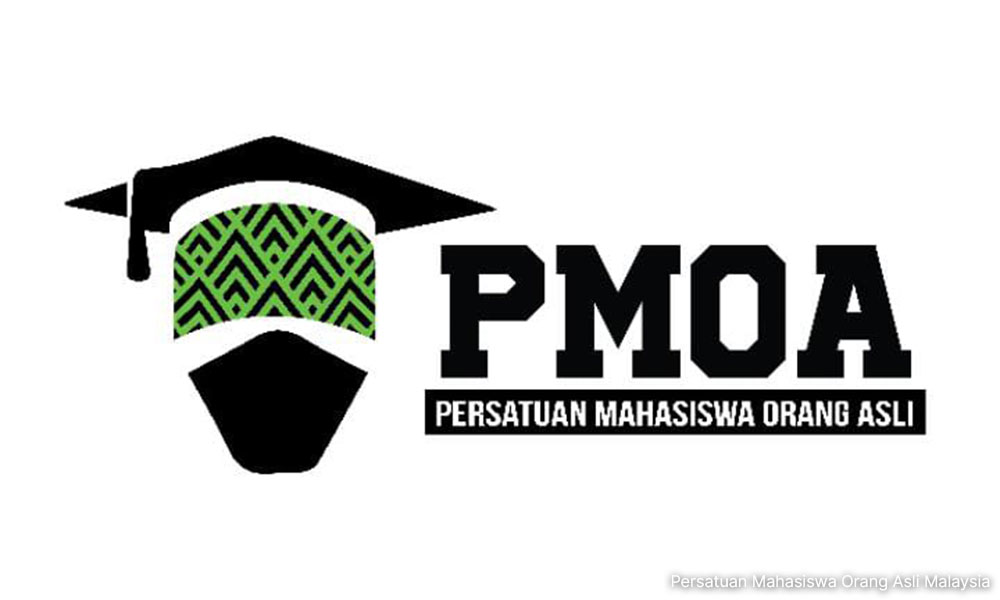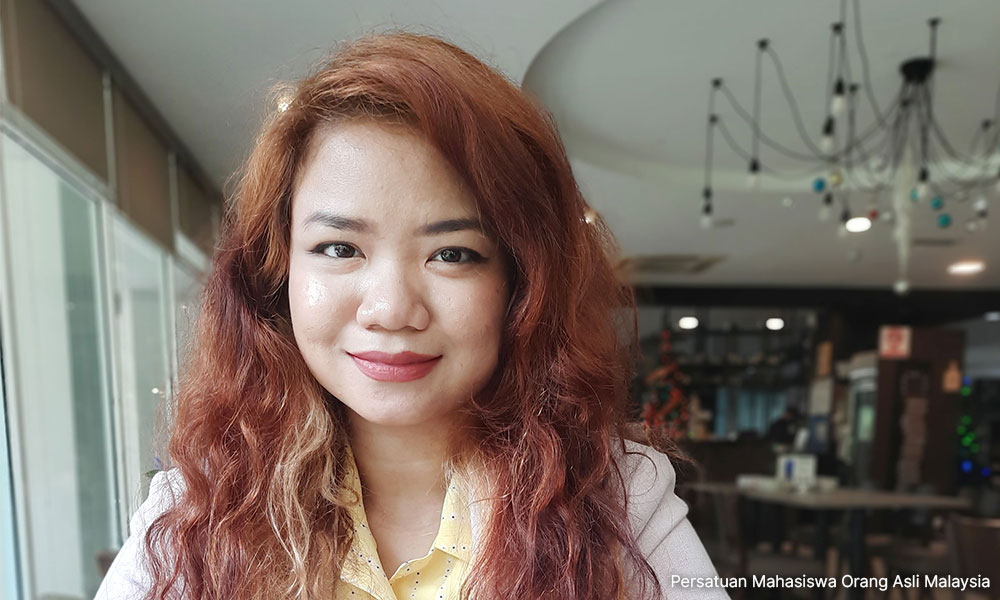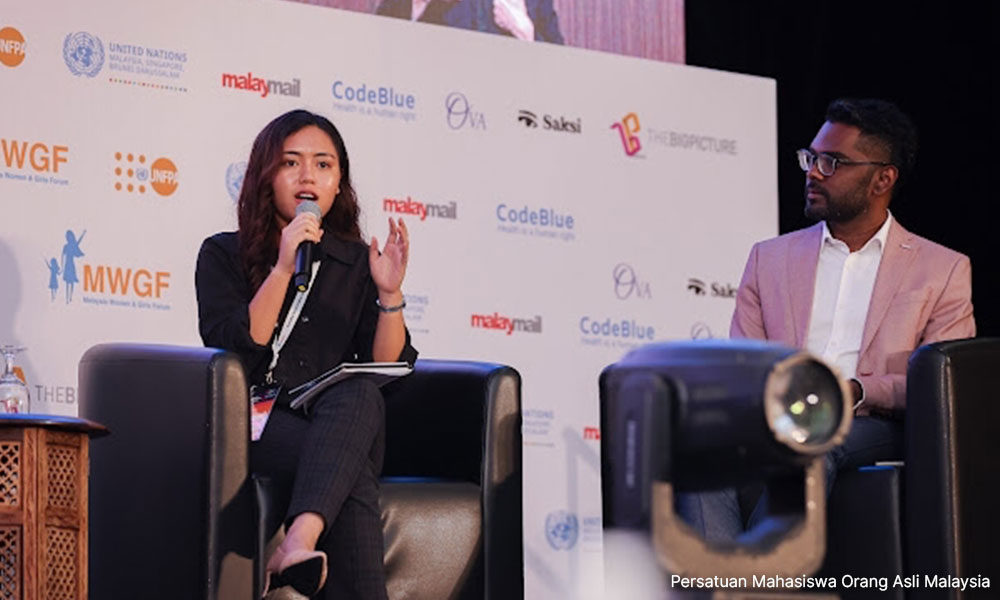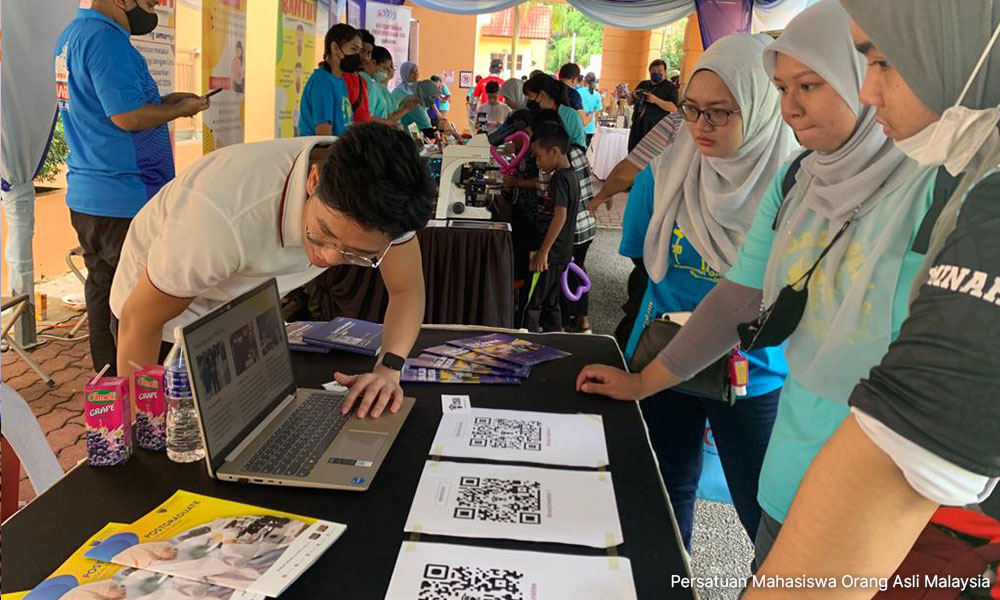Orang Asli are often associated with terms such as “poverty”, “school dropouts”, “losing land rights” and being “left behind” whenever the community is featured in the media.
These issues are real and affect the Orang Asli but are not a complete and correct representation of the community as a whole.
Such narratives often present a partial and negative view of the Orang Asli who have made significant contributions to the country.
When Shereen Ajani - who is of Temuan descent, an ethnic community from the Proto-Malay Orang Asli subgroup - walked through the gates of Universiti Malaya (UM) to pursue a law degree, she had a burning desire to start an association that united Orang Asli varsity students.
There were other organisations looking into the welfare of the Orang Asli, but there weren’t any that stressed educational matters, or, specifically, the welfare of Orang Asli tertiary students.
“I had this vision of starting an association that would unite Orang Asli students from the universities who will give back to their community. But I didn’t have a network, a team and the knowledge of how to go about it,” said Shereen, who is in her final year of law studies.
“In my first year, I started to network and met people who became and remained my mentors until today. They gave me the advice and guidance to make this vision a reality,” she added.

Shereen began connecting with her peers at UM and founded the Persatuan Mahasiswa Orang Asli Malaysia (PMOA) on Jan 8, 2021. Soon, like-minded students from other universities also joined PMOA.
Rapid growth
Since its inception, PMOA has garnered about 170 members. They have actively engaged in various forums and discussions, collaborated with government agencies on community-related initiatives and participated in civil society events.
The association was also established with the intention to change the narrative about the Orang Asli.
“There are many Orang Asli who are intelligent, hardworking, and qualified to pursue their education in renowned local universities. Some have even gone abroad to study.
“We want to show how we have progressed. We don’t want people to keep thinking that we are backward,” said Shereen.
The association aspires to become a platform for students to give back to their communities.
“We want to support the community because we want the Orang Asli to be acknowledged as a community in Malaysia. The Orang Asli have to be proud of their roots and heritage so that they can share their history with others,” she explained.
Adapting to change
The youngest of seven siblings, Shereen grew up in Desa Temuan, Bukit Lanjan in Selangor. Bukit Lanjan was one of the earliest locations where the Orang Asli were resettled from Kuala Lumpur as urbanisation started to affect the Orang Asli settlements.
The massive development led to the relocation of 147 families to new houses built in an urban environment, requiring them to adapt to a new way of living.
Shereen recalls a time when the Orang Asli in her village would forage and hunt in the jungle for food and other resources. Her father was a hunter and would bring home games such as wild boar, monkeys, and deer.
But after the development, many had to give up their traditional forms of subsistence and find jobs in the new urban township to survive. Some became clerks, and some worked in factories. Shereen’s father became a security guard.
Schooling and socialising with the urban people were big adjustments for Shereen.
“We went through culture shock. In the village school, I used to be surrounded by Orang Asli who were mostly my relatives.
"But in the city, this was my first time seeing Malays, Indians, Chinese, Sabahans and Sarawakians. It was a new experience learning about their different cultures, festivities, and ways of thinking.
“There was also access to services such as healthcare, education and transportation which we didn’t have before,” she said.
Discrimination still a factor
The lack of understanding about the Orang Asli led to some upsetting experiences for Shereen. There were times when her schoolmates bullied and discriminated against her.

“I really can’t fault them 100 percent because things won’t have happened this way if we had our history and stories told in the textbooks so that the others know that we exist.”
Indeed, Shereen is proud of her roots. She feels the main issue affecting Orang Asli youth today is their sense of identity or lack thereof.
In a globalised world, it is very easy to imbibe the culture and lifestyle of others, such as the Western culture. So, it would be easy for the Orang Asli to lose their sense of identity especially if they have only superficial knowledge of their roots and heritage.
Shereen feels that the young and old should work together to share stories and their histories so that the Orang Asli heritage will not be forgotten.
Resilience through education
The PMOA secretary, who only wants to be known as Adrian, is of Semelai descent - also a Proto-Malay subgroup.
He lived in the Gombak 12th mile Orang Asli village until he was seven, before relocating with his family to East Malaysia, where most of his primary and secondary schooling was.
“I was surrounded by Kadazans, Dusuns, Indians, Malays, Chinese - but especially Kadazans and Dusuns, as they are also indigenous people. I didn’t feel any discrimination or feel left out.
“It was a unique experience for me as I was surrounded by indigenous communities in East Malaysia,” he said.
Adrian returned to Kuala Lumpur to pursue his foundation and degree in Software Engineering at UM.
“Originally, I was not active on social media. But one of my family members showed me the information about PMOA and encouraged me to reconnect with my community. I felt I should actually try to do something.
“So, I reached out to them on social media. The president replied, we had dinner and I got involved in PMOA. One thing led to another, and they eventually made me the secretary,” he said, adding that he assists Shereen in administrative matters and updates PMOA’s social media.
Adrian believes that education can help the Orang Asli to be resilient.
“Education can change your future, it can change my future, it can change my family’s future. The more the Orang Asli are educated and continue their education in universities, the more resourceful they become.
“They’re able to go anywhere to make a living and provide for their families. And their families won’t have to work too hard to provide for the rest. Then, they will be able to send the next generation to be educated,” he explained.
Education a weapon of change
A UM student known only as Aidi, a Semelai Orang Asli from Bera, Pahang, is in his final year at the Institute of Biological Sciences pursuing a bachelor’s degree in Ecology and Biodiversity.
“The study of ecology is wide,” he began.
“We learn about parasites, taxonomy, and the physiology of plant and animal life.
“The Orang Asli culture is tied to the biodiversity and ecology of the environment and they depend on the land for their daily sustenance. For me, this (subject) is interesting because it is connected to my heritage,” he shared.

Aidi didn’t anticipate coming this far in his educational journey but believes that this was a calling for him.
“In the context of education, I felt called to show others that the Orang Asli can compete in a healthy way, educationally. It’s not about showing off and saying you are better, but about being able to give your input on issues and problems.
"As the youngest and only male child in my family, I feel I play a crucial role in demonstrating to the younger Orang Asli generation how education is an important weapon that can change the fate of our community because no one else can change our community except us,” he added.
After primary school, Aidi was one of the 30 students selected for Pusat Intelek Pelajar Orang Asli (PIPOA) - a boarding school programme funded by the Orang Asli Development Department (Jakoa) to develop educational excellence among Orang Asli students who scored 3As and above in the UPSR examinations.
The three-year programme provided him with the tools, tuition, facilities, and life skills while he completed his Form 3 education at SMK Rompin Permai.
Aidi was later accepted into the Mara Junior Science College Muadzam Shah in Pahang where he graduated, scoring 8As and 1B in his SPM.
“One mindset that Orang Asli youth have about stepping into university or even attaining excellent results in their exams is the word ‘difficult’. They have the assumption that everything related to academics is difficult.
“Perhaps, they have been conditioned to think that getting into university is unachievable, and to get 8As in their exam is impossible because they’d have to struggle. I believe that the effort we put in will determine the outcome,” he said.
Aidi proceeded to offer a few studying tips.
“Pay attention in class, do your revisions, and always ask questions. Even if your questions aren’t interesting, trust me, when you ask questions, you will remember the lesson better.”
Aidi believes in obtaining the blessings of the people around him - family, teachers and lecturers.
“No matter how busy I am, I will call my parents and ask how they are doing, and report on my progress. Getting their blessing is important.”
There are families who may dissuade their children from pursuing an education and, instead, ask them to work in the village. Aidi stresses that parents should encourage their children to be educated.
In the PMOA, Aidi is the publicity and media head and manages the team who looks into PMOA’s publicity, especially on social media platforms.
Giving back to the community
The PMOA was founded with the aim of mobilising students to give back to their communities through its programmes and engagements.
Besides educational empowerment, the association can be used as a platform to raise issues that are affecting the Orang Asli community.
PMOA hopes to engage with the government and NGOs on issues such as climate change, ancestral land rights, and Orang Asli education.

“I would also like the PMOA to network with the International Indigenous Society so that we can learn and be inspired by how other indigenous societies around the world empower and plough back help to their communities so that we can adapt it here,” Shereen said.
“In 2023, the activities will focus on empowering the Orang Asli students who will be transitioning into the workforce. We plan to run practical programmes such as ‘how to write a resume’, ‘how to create a LinkedIn profile’, and ‘how to apply for work after graduation’,” she added.
PMOA hopes that various people can help raise awareness about Orang Asli matters.
“If you want to see change, you need to be the change. There will be barriers ahead of you, but never give up and always believe in yourself,” Shereen advised.
This story first appeared in CeritaKita, a collection of stories from grassroots communities. - Mkini



No comments:
Post a Comment
Note: Only a member of this blog may post a comment.